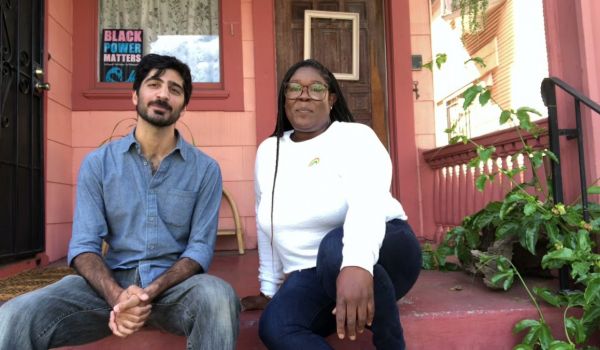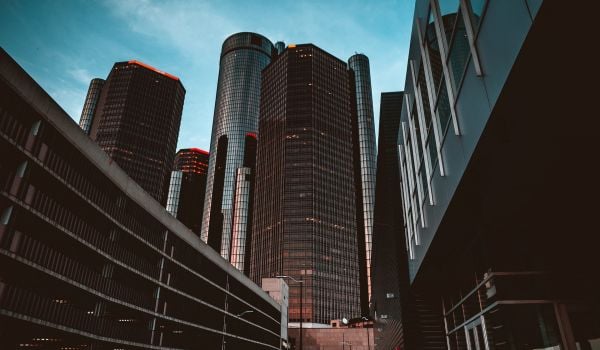The Panama Papers have shocked the world and brought down at least one world leader with their revelations of how plutocrats, politicians and plunderers use secret offshore bank accounts to hide assets from the tax collector or law enforcement. But a recent paper from a researcher at a global anti-corruption organization inspires the question: “Who needs offshore bank accounts when there’s urban real estate available?”
Land in cities is an increasingly desirable and valuable commodity, and especially where it is scarce, it opens up new avenues for corruption and distortion of markets. And corruption and money laundering in the world of real estate also hurts ordinary people as well as the public purse. New York rents might be less astronomical were it not for the money pouring into ultra-luxury high-rise condos whose owners almost never set foot in them. Citizens of Mumbai might find housing more plentiful and affordable if public officials didn’t hold up permits until bribes were paid or fight municipal expansions and transportation projects that would open up new land for development (possibly lowering the value of other land under their control). And real estate agents in cities from London to Sydney routinely execute sales transactions involving shell corporations whose owners are as anonymous as the clients of Mossack Fonseca were.
What cities around the world are facing, says Dieter Zinnbauer, is a classic “resource curse.” Zinnbauer is the senior program manager for emerging policy issues in the policy and research department of Transparency International, a worldwide organization devoted to fighting corruption. A resource curse occurs when a polity controls a highly desired commodity that is in short supply, opening up opportunities for officials and the politically connected to reap huge unearned profits (“rent,” in economist speak) from the scarcity. The means by which they do this, however, also cause damage to the societies they lead. Venezuela’s troubles today are the result of Hugo Chavez’s exploitation of a resource curse that ended when the price of oil fell, and both the shantytowns on the outskirts of numerous cities and the exorbitant rents New Yorkers pay for apartments are also products of similar behavior.
Zinnbauer’s paper, “Towards an urban land resource curse?,” lays out the problem in detail and points to some possible solutions. The problem stems from the continued growth of cities around the world: As has been repeated often amid prep for the UN’s Habitat III conference this fall, which aims to solidify a New Urban Agenda, the world’s urban population is projected to grow by 70 percent by 2050. This growth will create demand for more urbanization around existing cities as well as completely new ones. As most cities derive a sizable share of their revenues from taxes on urban land and buildings, this growth in demand brings with it both surges in revenue and opportunities for officials to skim some of that revenue off the top. Those officials then need to find some place to stash those ill-gotten gains, and again, urban real estate is an ideal place to put it thanks to the way real estate sales are regulated (or not).
The practices Zinnbauer describes in his essay are not of recent origin; cities have regulated and planned land use for more than a century. What is new, he says, is the way the problems are being framed. Zinnbauer began to notice around 2012 that the problems arising from urban land regulation closely resembled those of oil-rich countries. Worse still, the way land transactions are recorded in many cities makes it even harder to track where and to whom the illicit gains go.
“It is extremely difficult to put a price tag” on the damage done by corruption in the urban development sphere, he says. “We have a wealth of anecdotal cases from many developed countries that suggest that this is a widespread problem, but estimating the true scale and scope is close to impossible. And any direct losses to the public purse are arguably dwarfed by the many negative knock-on effects when corruption distorts urban development and damages the social fabric of urban communities.
“You could say that corruption in this area has the unfortunate potential to hardwire blatantly unjust and unsustainable conditions into the structure and workings of cities for decades to come.”
The New York housing market provides a prime example of what Zinnbauer is talking about. Many of those super-expensive apartments and condominiums are being sold or rented to unknown individuals who aren’t living in them; census data show that nearly one-third of all the apartments from 49th to 70th streets between Park and Fifth avenues are unoccupied at least 10 months of the year, for instance. These unoccupied housing units both deprive the city of some tax revenue and make housing even more unaffordable than it already is in New York, driving middle-class residents from the city.
In Mumbai, municipal officials routinely demand bribes of up to 1,200 rupees ($18 U.S.) per square foot, about half as much as it costs to build a square foot of space, in order to approve building permits that take anywhere from one to four years to be issued. The bribes and delays exploded after new rules were implemented with the intent of keeping developers from building more space than local zoning allowed.
In other cities, especially in the developing world, opaque and confusing land title records open up opportunities for corruption. Zinnbauer’s paper notes that this is an especially vexing problem in Nairobi, where public officials have simply seized title to land on which public institutions such as schools sit and handed them over to private developers.
As befits an organization with “transparency” in its name, Zinnbauer’s group promotes more open information as the key to removing the incentives for corruption. “In a nutshell, we need to be able to follow the money,” he says. “We need to have confidence that urban policymakers have no massive conflicts of interest when making important decisions. We need to have a system where urban planners are well aware of and equipped to follow through on their professional responsibilities to serve the community as a whole.”
In developing countries, that openness might take the form of clearing up confusing title records, while in developed ones, it might mean extending the same “know your customer” and due diligence rules that apply to bank accounts to real estate sales transactions. Zinnbauer says that pilot programs instituting such rules are being implemented in New York and Miami, both cities with large numbers of foreign purchasers of real estate.
“I think in 25 years’ time, we will look back at the current lack of transparency and due diligence in property markets with the same incredulity as we watch a doctor smoke in his office in an episode of ‘Mad Men’ today,” Zinnbauer says.
This piece is part of a series of reported articles and op-eds that Next City is publishing related to preparations for the United Nations’ Habitat III conference in Quito, Ecuador, in October 2016. With a grant from the John D. and Catherine T. MacArthur Foundation, we’re covering the critical issues at stake on the road to creating a “New Urban Agenda,” and hosting events at PrepCom III in Surabaya, Indonesia, in July 2016, and in Quito.

Next City contributor Sandy Smith is the home and real estate editor at Philadelphia magazine. Over the years, his work has appeared in Hidden City Philadelphia, the Philadelphia Inquirer and other local and regional publications. His interest in cities stretches back to his youth in Kansas City, and his career in journalism and media relations extends back that far as well.
Follow Sandy .(JavaScript must be enabled to view this email address)
















